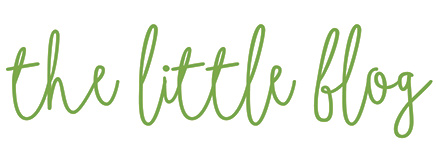I love them beyond all reason. But sometimes my clients need me more.

We have found this article by Lara Bazelon in the parenting section of the New York Times.
I am a lawyer, a law professor and a writer. I am also a divorced mother of two young children. I’m often asked some version of: “How do you excel at work and be the best mother you can be?”
Every working mother gets this question, which presupposes that a “work-life balance” is achievable. It’s not. The term traps women in an endless cycle of shame and self-recrimination.
Like many women, I often prioritize my job. I do this because, as the head of a single-parent household, I’m the sole breadwinner. My ex-husband, who has joint custody, is an amazing father and my life would be impossible without him. Neither of us pays the other support.
My choice is more than a financial imperative. I prioritize my work because I’m ambitious and because I believe it’s important. If I didn’t write and teach and litigate, a part of me would feel empty.
In 2013, I was the trial lawyer on a case to free an innocent black man improbably named Kash Register. As a teenager in 1979, because of police and prosecutorial misconduct and witnesses who lied, he was condemned to serve life in prison for a murder he did not commit.
Thirty-four years later, he was still behind bars. Even though we had presented the district attorney’s office with what we believed was overwhelming evidence of my client’s innocence, it insisted on what was essentially a retrial in front of a judge.
At the time, my son was 4 and my daughter was 2. One month before the retrial started, I moved from San Francisco to a tiny apartment close to the courthouse in Los Angeles. I went long stretches without seeing my children. They were lovingly cared for by their father, their grandmother, my son’s preschool teacher and my daughter’s babysitter. When I would fly home, I was often not fully present. My client needed me more than my children did. So he got more of me. A lot more.
During these months, my son had a lot of questions. “Why are you gone so much?” “Why are you always on the phone talking about that guy with the funny name?” I explained what was at stake. The good guys are fighting the bad guys. If we lose, it means racism won and a man’s life was destroyed.
“Are you going to win?” he wanted to know.
“That’s my job,” I said.
I have missed meetings to take my kids to the park or a museum, and picked them up early to go to karate class. Recently, I turned down an offer to teach an extra class for a significant amount of money because I didn’t want to lose that time with them.
But there is always another client to defend, story to write or struggling student who just can’t wait. Here are things I have missed: my daughter’s seventh birthday, my son’s 10th birthday party, two family vacations, three Halloweens, every school camping trip. I have never chaperoned, coached or organized a school event.
Sometimes my choices make me sad. My daughter’s seventh birthday was the worst. She cried, and I did everything I could not to. I felt sick to my stomach. But I had a trial starting the next day, six hours away.
I had picked the date, not the judge, because I knew that the other side wasn’t ready. Delaying even a few days would have meant losing a crucial advantage. I wasn’t going to risk it knowing what was on the line for my client.
Of course, I sometimes feel doubt, shame and fear. I know I’m not a “normal” mom, because my kids tell me so. I remind myself that this does not make me a “bad mom.” I also remind myself that if I were a dad, I would be getting accolades for all the times I scheduled a doctor’s appointment or arranged a play date.
I am proud of what I have accomplished. I am prouder that I can support myself and my children. But sometimes I wonder if my choices will damage them.
In 2017, my son’s third-grade class had a midday Thanksgiving potluck. Driving back from court, I dashed into the Whole Foods, bought the first thing I saw — a loaf of lemon poppy seed poundcake — and rushed over to school. The room was full of mothers with a smattering of dads. I was the only person in a suit. I put the lemon poppy seed loaf on a table, next to another mother’s homemade stew. My son looked over at me and winced.
After the meal, it was time for presentations. Each child had been given a piece of orange paper shaped like a leaf with prompts to answer: “I appreciate my parents because” and “this helps me to.”
One by one, the children stood up and read what they had written. Many of them talked about how much they loved their moms, because they made them delicious food or gave them a safe place to live.
I grew uncomfortable as I listened, my smile frozen on my face. What on earth was my son going to say when it was his turn? That he lived in two different houses and routinely ate boiled hot dogs and chicken fingers while his mother told true crime stories? That he had once told me, politely, as we sat down to dinner, “Mom, I think you forgot the vegetable”?
My son was one of the last children to speak. He stood up and, in a clear voice, said: “I appreciate my parents for being lawyers because they get people out of jail. This really helps me reflect, do the right thing and have positive role models.”
He looked over at me, the barest hint of a smile on his face. I wanted to leap out of my pint-size chair, raise my fists in the air and yell, “That’s my boy.” I have his orange leaf on the wall in my office. Sometimes I look over at it when I’m working late at night.
I hope my kids get it. I think they do. I love them beyond all reason, and their existence gives my life profound meaning. And I have the same feelings about my job.
Source: We have found this article by Lara Bazelon in the parenting section of the New York Times. Lara Bazelon (@larabazelon), a professor at the University of San Francisco School of Law, is the author of, most recently, “Rectify: The Power of Restorative Justice After Wrongful Conviction.”
